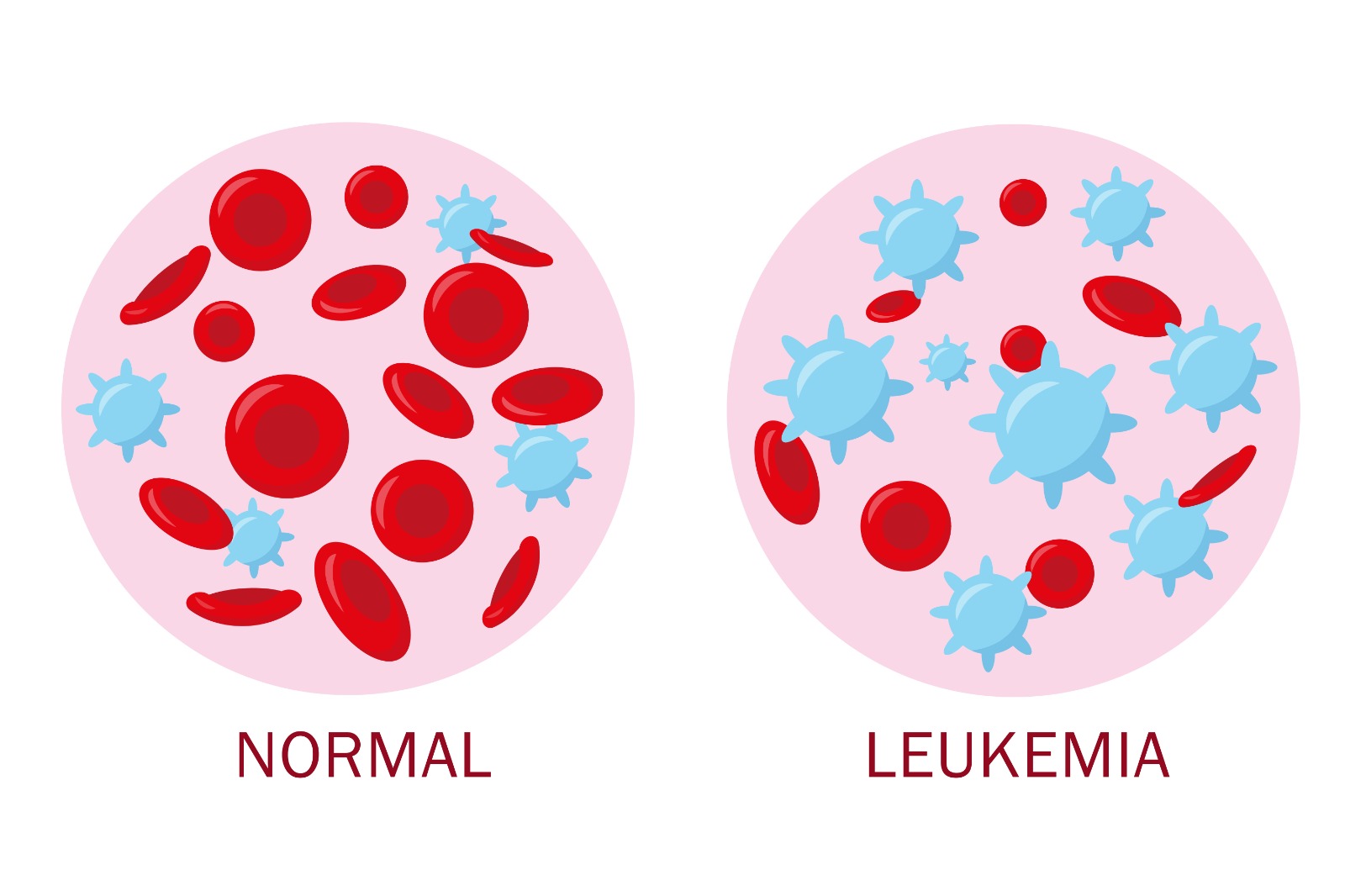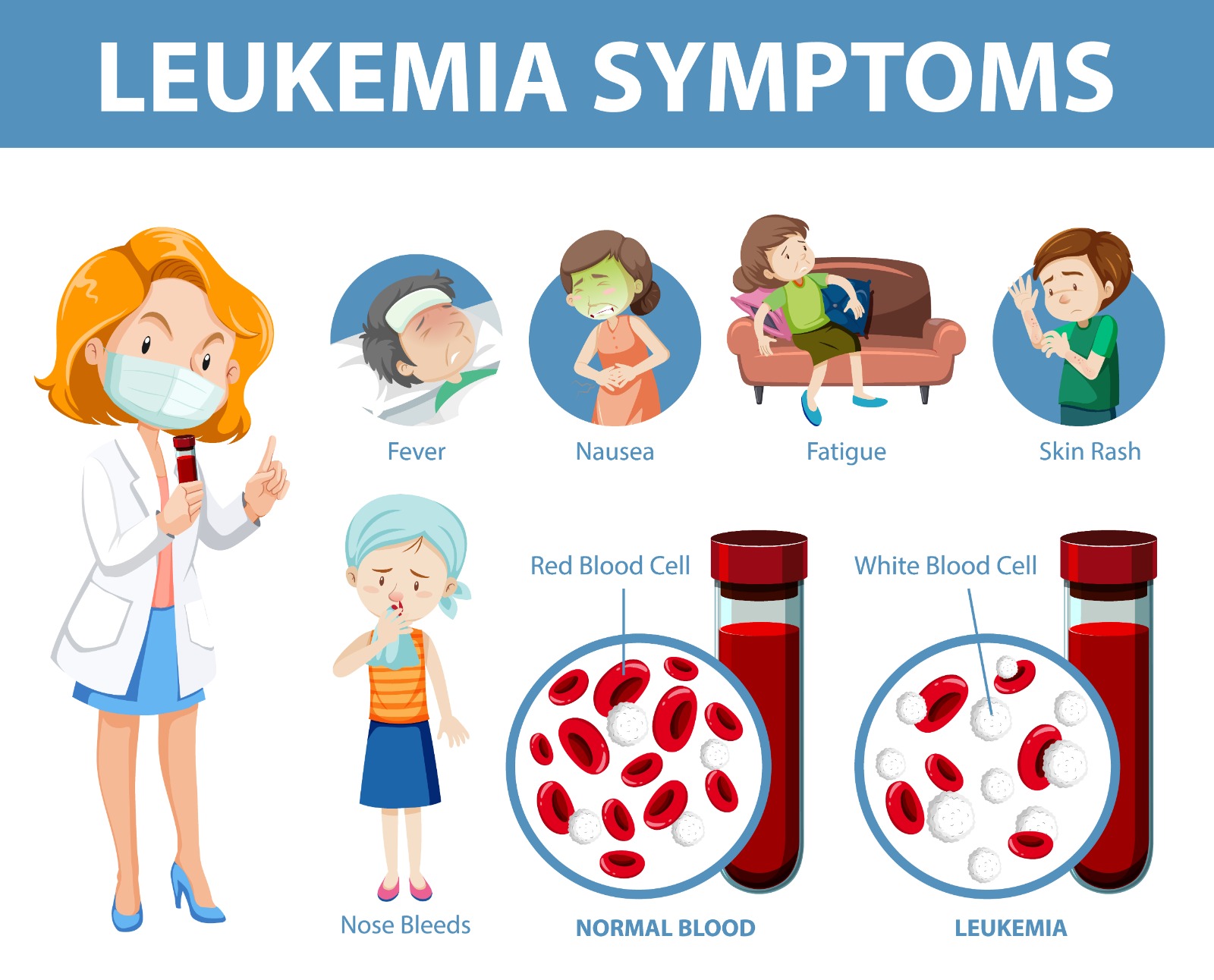Chronic Myeloid Leukemia
Chronic Myeloid Leukemia (CML) is a subtype of cancer that affects thousands of people globally. CML is a complex and challenging condition characterized by the abnormal growth of white blood cells in the bone marrow, but with advancements in research and treatment, there is hope for a brighter future for those living a challenging life with this disease.
Whether you are diagnosed with CML or are a caregiver, it is essential to have a comprehensive knowledge of the disease. Turkey offers one of the finest medical treatments for CML in the world. Read this blog to understand the definition, causes, symptoms, diagnosis, and Chronic Myeloid Leukemia treatment in Turkey.

What Is Chronic Myeloid Leukemia?
Chronic Myeloid Leukemia (CML) is a type of cancer characterized by the unchecked proliferation of white blood cells, especially the myeloid cells in charge of preventing infections and preserving a strong immune system. In CML, a genetic mutation called the Philadelphia chromosome occurs, producing an abnormal protein called BCR-ABL1. This protein causes the myeloid cells to multiply excessively, leading to an overabundance of immature and mature white blood cells.
CML is classified as a myeloproliferative neoplasm, which means it is a condition where the bone marrow produces too many cells. With three phases—chronic, accelerated, and explosion—it typically develops gradually. The disease is typically manageable in the chronic phase and may not cause noticeable symptoms. However, if left untreated, CML can progress to the more aggressive accelerated and blast phases, where the abnormal cells multiply rapidly and crowd out healthy blood cells.

Causes And Risk Factors Of CML In Istanbul
Although the exact cause of CML is unclear, below are a few things that might lead to CML in Istanbul.
Genetic Mutations and the Philadelphia Chromosome
The Philadelphia chromosome, a particular genetic anomaly, is the cause of the majority of CML cases. A translocation between chromosomes 9 and 22 develops this chromosome, which in turn creates the aberrant gene BCR-ABL1. The BCR-ABL1 gene generates a protein that encourages the unchecked expansion of white blood cells, which causes CML.
Environmental and Lifestyle Factors
While the exact environmental factors contributing to CML development are not fully understood, exposure to certain substances such as ionizing radiation and some chemicals like benzene has been linked to an increased risk of developing CML. However, these factors are relatively rare causes of the disease.
Age and Gender
Chronic Myeloid Leukemia can occur at any age, but it is most commonly diagnosed in adults, particularly those over 50 years old. As people age, their chance of having CML increases. CML affects both men and women, with a slightly higher incidence in males.
Family History
Though most CML cases are not inherited, a small percentage of individuals have a family history of the disease in Istanbul. A genetic predisposition may raise the risk of developing CML in several circumstances.

Chronic Myeloid Leukemia Symptoms
Chronic Myeloid Leukemia symptoms can differ from one person to another, and some individuals may not experience any noticeable symptoms in the early stages of the disease. However, the individuals may experience the following symptoms as the condition progresses.
- Fatigue
- Excessive sweating
- Unintentional weight loss
- Abdominal discomfort
- Pain in bones and joints
- Easy bruising and bleeding
- Recurrent infections
- Low energy to carry out day-to-day activities
It's significant to remember that these symptoms might potentially be related to other illnesses. If your symptoms are persistent or concerning, speak with our medical specialist in Istanbul to get your situation evaluated.

How To Diagnose Chronic Myeloid Leukemia In Turkey?
The diagnosis of Chronic Myeloid Leukemia (CML) in Turkey involves a combination of medical history evaluation, physical examination, and specific laboratory tests.
Medical History And Physical Examination
In addition to doing a physical examination, a physical examiner will evaluate your medical history, including any symptoms you may be feeling. They will look for signs such as an enlarged spleen, swollen lymph nodes, or other abnormalities.
Complete Blood Count (CBC)
A doctor will calculate the number of platelets, white blood cells, and red blood cells in your blood. White blood cells, notably granulocytes, a subtype of white blood cells, are frequently increased in individuals with CML.
Bone Marrow Aspiration And Biopsy
In this procedure, a small sample of bone marrow and a small piece of bone is taken from the hip bone or another suitable site. The samples are then examined under a microscope to determine the presence of abnormal cells and to confirm the diagnosis of CML.
Genetic Testing
A distinguishing feature of CML is the presence of the BCR-ABL1 fusion gene and the Philadelphia chromosome. Genetic tests, such as fluorescence in situ hybridization (FISH) or polymerase chain reaction (PCR), detect these genetic abnormalities in the blood or bone marrow cells.
For a precise diagnosis of Chronic Myeloid Leukemia in Turkey, get in touch with our professional.

Chronic Myeloid Leukemia Treatment In Turkey
Chronic Myeloid Leukemia treatment in Turkey aims to control the disease, achieve remission, and improve the quality of life for individuals with CML.
Targeted Therapy With Tyrosine Kinase Inhibitors (TKIs)
TKIs are the standard therapy for the majority of CML patients. These medications prevent the BCR-ABL1 protein, which controls the unchecked cell proliferation in CML. Commonly used TKIs include imatinib, dasatinib, nilotinib, bosutinib, and ponatinib. TKIs are typically taken orally daily and have shown remarkable success in achieving high response rates and long-term survival for CML patients.
Stem Cell Transplantation (Bone Marrow Transplant)
Stem cell transplantation may be considered for individuals with CML who have a high risk of disease progression, do not respond to TKIs, or have progressed to advanced stages of the disease. In this technique, healthy stem cells from a donor who matches the patient are used to replace the damaged bone marrow. It carries significant risks and is typically reserved for younger patients with suitable donor options.
In some instances, physicians may also consider alternative treatments like interferon therapy, clinical trials, and experimental therapies. Please book a consultation with our CML specialist to determine the best Chronic Myeloid Leukemia treatment in Turkey appropriate to your specific condition.

Book An Appointment With Medical Park Hospitals For First Class Chronic Myeloid Leukemia Treatment
Medical Park Hospitals, Turkey's largest healthcare provider, offers high-quality medical services at an affordable cost. With a network of 25 hospitals, Medical Park provides international standard care through 200 state-of-the-art operating theaters and over 5000 beds. These facilities are maintained according to stringent quality and safety protocols, ensuring patients' well-being.
Medical Park hospitals in Turkey have obtained prestigious international certifications, such as JCI, acknowledging their excellence in offering top-notch treatment for CML. Therefore, they are an apt choice for anyone thinking about medical tourism. Get in touch with our team of medical specialists to receive detailed information regarding the cost-effective Chronic Myeloid Leukemia treatment prices in Turkey 2023.


